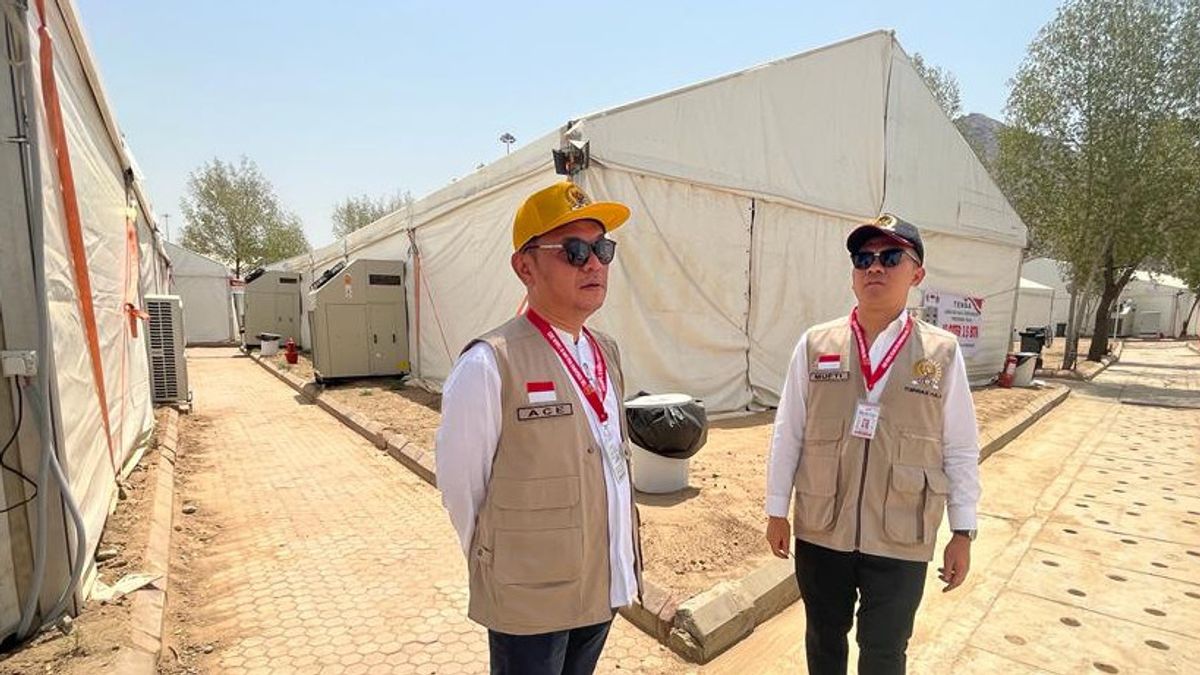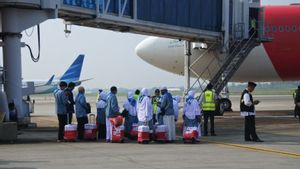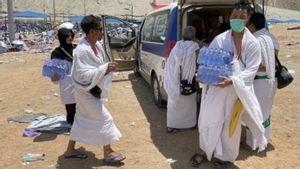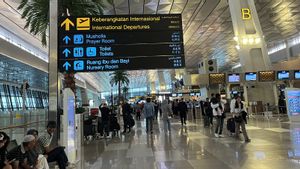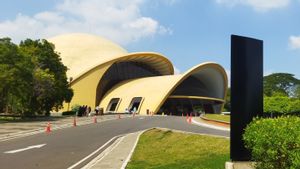JAKARTA - The House of Representatives' Hajj Supervisory Team (Timwas) found many problems in organizing the pilgrimage now. The DPR will ask the Ministry of Religion (Kemenag) to evaluate the total implementation of the pilgrimage so that the implementation of next year will not be repeated.
"After the Hajj season is over, we will invite the Ministry of Religion to conduct a total evaluation of the 2023 Hajj management which seems to have many shortcomings here and there," said Member of the House of Representatives Hajj Supervisory Team, Ace Hasan Syadzily, Monday, July 3.
Ace, who led a small team under the supervision of the Hajj in Mecca, provided a number of notes from the organizers of the Hajj in 2023. This follows the many problems that caused Indonesian pilgrims to have difficulties while in the Holy Land.
"First, the mashariq did not fulfill its commitment to several community components while in Arafah, Muzdalifah and Mina (Armuzna)," explained Ace.
Mashariq is a team managing Hajj from Saudi Arabia whose services were used by the Indonesian government during the Hajj pilgrimage process in Arafah, Mina and Muzdalifah for four days.
Meanwhile, the community is the fee paid to mashariq for services to pilgrims during the pilgrimage in Arafah, Mina and Muzdalifah where in 2023, Indonesia will pay a price of Rp. 14.03 million per congregation. With this amount, Ace regretted the lack of service from mashariq, including due to the problem of delays in food distribution.
"Many worshipers have not received consumption when they need food in the middle of a tired and tired atmosphere. Food distribution management is also random," he said.
Ace also highlighted the condition of the congregation when carrying out the evening at Mina, which is an activity to spend the night focusing on doing worship activities by increasing remembrance, remembering and getting closer to Allah. It is known, many Indonesian pilgrims do not get a tent during mabit in Mina so they have to rest outside the tent.
"In addition, the management of the congregation's placement during arrival was very chaotic and random. It was found that many of the congregation were fighting over the tents," explained Ace.
Furthermore, the Deputy Chairman of Commission VIII of the DPR criticized the lack of toilets which resulted in the congregation having to queue for hours. Ace said these conditions made it difficult for Hajj pilgrims, especially women.
VOIR éGALEMENT:
"Bathing rooms in Mina and Arafah tents are still very limited and far from the capacity of the congregation. Long queues are very visible in the use of toilets," he said.
The fourth note from Ace is the time when the Hajj pilgrims are abandoned in Muzdalifah due to delays in transportation. According to him, this incident can be anticipated if there is good mitigation, especially since the issue regarding this has become the subject of discussion during a meeting between the DPR and the Ministry of Religion.
"The taradudi bus case that brought the congregation from Muzdalifah is one of the fatal mistakes of the management of the congregation's movement which was not prepared for mitigation. Even though we have reminded you at the Armuzna preparation meeting," said Ace.
With the obstacles in the Hajj process, especially in Arafah, Mina and Muzdalifah, Ace encouraged the Indonesian government to review the mashariq provided by the Saudi Arabian government.
"The Indonesian government must submit a strong protest to the Saudi Arabian government over this troubled service because the Saudi Arabian government is offering this mashariq to the Ministry of Religion," said the legislator from the West Java II electoral district..
Then another note from Ace is the lack of attention to elderly pilgrims where of the total Indonesian pilgrims this year, 30 percent are elderly groups. Whereas since the beginning of planning the implementation of the 2023 Hajj pilgrimage, the DPR has warned about adding facilities for the elderly, who often have difficulty during the process of moving places to worship.
"We found some facilities for the elderly that we recommend, such as wheelchairs and golf cars, are not optimal," said Ace.
In addition to the five notes above, the DPR's Hajjwas Team also provided input related to the technical process so that there would not be a buildup, especially during the ceremony. Ace said the government should have prepared Hajj officers at several points during the serial throwing procession so that it could help if there were obstacles from the congregation.
"Regulating the schedule of throwing from each group so that there is no accumulation of time in throwing the jumrah which is carried out for 3 days. It is very important to place officers to monitor the field in the congregation to coordinate with each other in terms of the situation at the throwing place," he explained.
Not only that, Ace also assessed the vital placement of logistics officers and health workers in every location of the pilgrimage. This is to anticipate the occurrence in Muzdalifah again.
"Place the officers at every strategic point accompanied by logistics, especially drinking water, and health workers on the route through which the congregation passes, especially the Tenda Jamaah Al-Moashim route to the congregation," concluded Ace.
The English, Chinese, Japanese, Arabic, and French versions are automatically generated by the AI. So there may still be inaccuracies in translating, please always see Indonesian as our main language. (system supported by DigitalSiber.id)
